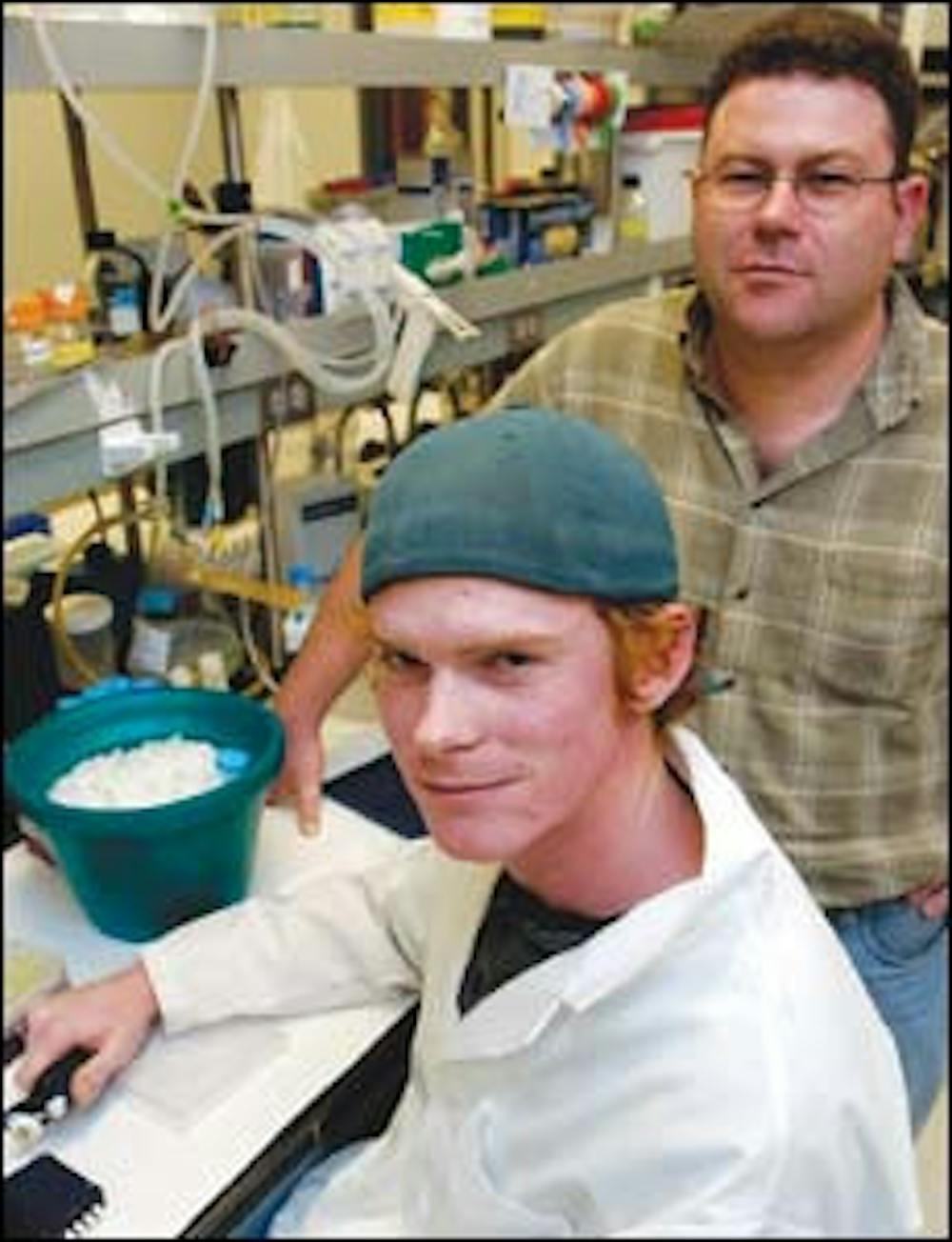The Biodesign Institute was recently honored by Gov. Janet Napolitano's office for making strides toward ending the global spread of HIV.
The Biodesign Institute's Center of Infectious Diseases and Vaccinology received the Innovator of the Year Award for Academia on Nov. 15 in honor of research being done by professors Tsafrir Mor and Charles Arntzen.
Mor and Arntzen are developing a vaccine and medications that could potentially block HIV from entering the body, and subsequently, causing AIDS.
Arntzen said it's encouraging to see biotechnology developments being honored.
"I think it's an affirmation that the new programs we're starting at ASU are not only achieving our educational objective but also being recognized as important to society," he said.
Technological innovation, scientific achievement and potential commercial viability were some of the criteria that Mor and Arntzen's research met in qualifying for the award.
Their research could play a role in alleviating the worldwide AIDS problem, Mor said.
The number of people infected with HIV has reached a new all-time high of 40.3 million people worldwide, the Joint United Nations Program on AIDS reported last week.
Those figures don't include the more than 3 million people who have died of AIDS this year.
"The disease is ravaging, and it's ravaging especially in very poor countries," Mor said.
Mor's research involves developing an antigen that would produce antibodies that protect people against the HIV virus.
In other words, he hopes to create what's called an "active vaccine."
A specifically engineered protein would be injected or taken orally, which would then elicit an immune response preventing HIV infection.
So far, Mor has tested the antigen on mice, many of which have successfully produced the protective antibodies.
The next step is to further test the antigen for safety, and within a matter of years, it could be tested for human use, Mor said.
However, because of the complexity of the HIV virus, the antigen alone will probably not be an all-encompassing solution to preventing HIV infection.
It's more likely it will be one of many components of a fully effective vaccine, Mor said.
"HIV is really clever, and it's just so hard to develop a vaccine for it," said Tagan Griffin, a molecular biosciences senior and lab technician who works with Mor.
In addition to helping with Mor's research, Arntzen is working on creating a plant-derived cream that could be applied vaginally to block entry of HIV into women's bodies.
Protecting women is a goal Mor and Arntzen share because they say it may be the first step to reducing the spread of HIV in Third World countries.
"In many parts of the world, women can't convince their husbands to wear a condom," Arntzen said. "We want to give women a protective tool. Her partner doesn't even need to know."
Reach the reporter at ann.censky@asu.edu.




